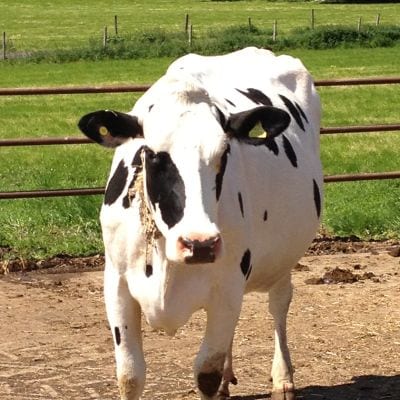October/November Farm Animal News Letter
BVD – what’s your herd’s status? – are you hunting PIs?
Bovine Viral Diarrhoea (or BVD) is caused by a pestivirus – a highly contagious and complex virus which can affect both digestive and reproductive systems in cattle (depending on when they become infected). BVD is becoming more common in UK herds and is responsible for serious productive and economic losses. Cattle can become infected with BVD by coming into contact with the saliva or faeces of infected cattle. Biosecurity, is therefore an important aspect of preventing the spread of BVD through your herd. When pregnant cattle are infected with BVD before the 1st 110/120 days of pregnancy, a persistently infected (PI) calf is born. These PI calves act as carriers of the BVD virus for life and can be an important source of infection on the farm. Biocontainment, which involves; testing adult cattle for BVD (culling the positives), vaccinating BVD free cattle, and testing calves for the virus (culling PIs) can lead to the eradication of BVD from your herd. For more information on BVD, testing for the virus, vaccination and biosecurity measures in your herd then contact either myself or Peter at the practice.
Pre- Breeding flock health checks
Before tupping it’s a good idea to check the health of your flock. Examination of both the ewes and rams before tupping allows for health problems to be detected before the stress and strains of the breeding season and winter months take hold. Ewes and Rams should be body condition scored. Rams and ewes at breeding should be approximately BCS 3.5 on a scale of 1 to 5. This is particularly important in rams as they can lose up to 2 BCSs over the breeding season. Assessing the BCS prior to breeding for identification of thinner ewes/rams, and allows extra time for feed supplementation in good time preventing costly losses further down the line. The teeth, feet and general health should also be assessed. Problems in any of these areas can result in poor fertility and further economical losses. It is also recommended that faecal egg counts are performed, to establish whether ewes and/or rams need worming prior to tupping. Why not drop off a faecal sample with us at the practice to test you flock for round worms and fluke? Worming protocols will vary between farms. Contact us at the practice if you would like more information regarding worming your flock or if you would like any more information relating to any of the topics mentioned above.
Respiratory disease and Pneumonia
The rapid change in day and night temperatures has already seen a massive increase in demand for Resflor and Alamycin. As winter draws in the incidence of pneumonia increases and we commonly find ourselves reaching for those trusty antibiotics again. After a respiratory infection/pneumonia the lung tissue becomes permanently scarred, which means the lungs can no longer function properly. This can have knock on effects on the animal’s longevity, performance and economical capabilities. It is therefore, vital that key management areas are addressed in order to help limit the amount/development of pneumonia on your farm.
Key management areas to improve include:
1. Ventilation: Fresh air flow aids elimination of waste gasses and respiratory pathogens harmful to the respiratory tract.
2. Drainage: Removes waste products that can be harmful to the respiratory tract, as well as promoting dry beds to help keep animals warm and comfortable, maximising food conversion and growth rates.
3. Feeding: Being cold and wet burns off more energy, if ventilation and drainage are poor then animals should be fed more in order to maintain growth rates.
4. Stocking density and mixing stock: stocking densities should be kept to a minimum in order to limit the amount of pathogens within shared air space. Housing animals of mixed aged groups and from different sources/age should be avoided. Older animals can act as a source of infection to younger and naive animals.
As well as maintaining good management, it is also important to ensure animals are vaccinated against the main respiratory viruses (this differs between species) as these cannot be treated with antibiotics.
It is important to address the above issues in order to limit costs and maximise animal health, welfare and productivity. Also with the use of antibiotics on farm continually under scrutiny, it is more prudent than ever to focus on disease prevention.
Herd and Flock Health Plans
Just a final note on health plans and farm assurance… As always prevention is far better than cure – a statement that is becoming increasingly relevant to farming today. Our herd and flock health plans are tailor made to your individual farm and cover important issues such as housing, feeding and nutritional requirements, disease management, lameness, fallen stock, fertility, young stock, and much more. Not only can herd/flock health plans be a useful document to refer to for information regarding the working of your farm, they can also be used as part of your herd/flock assurance plans. If anyone has any questions or would like a herd/flock health plan arranging then contact us so we can arrange a visit.
TB Testing
Just a reminder to all farmers to ensure that you are booking you TB tests as soon as possible. We will continue to do our best to book you in for a time convenient for you, but as we are increasingly busy with tests this time of year we advise that you book in sooner rather than later to avoid loosing out on your single farm payments.
< Back to articles Estcourt Vets Devizes
Estcourt Vets Devizes